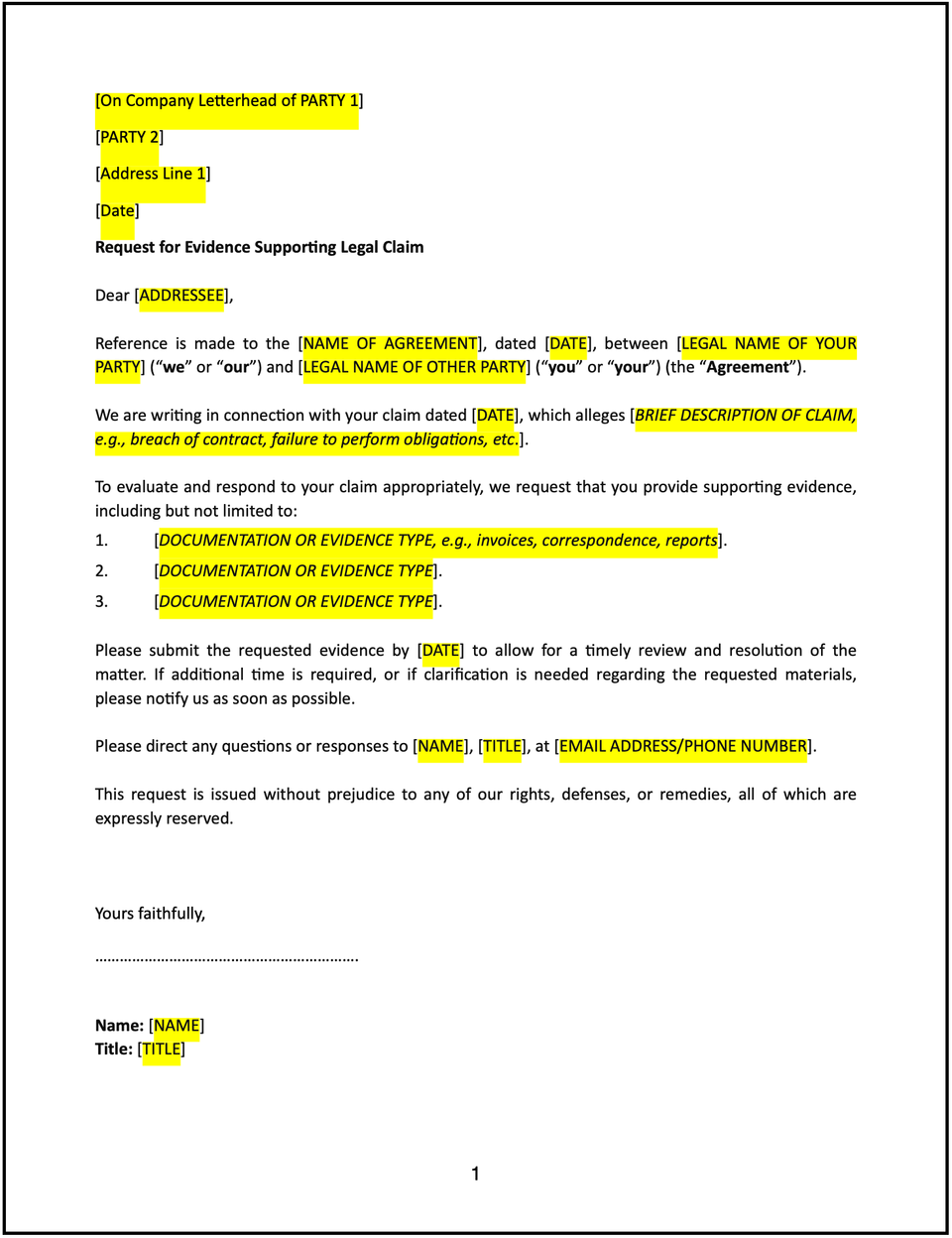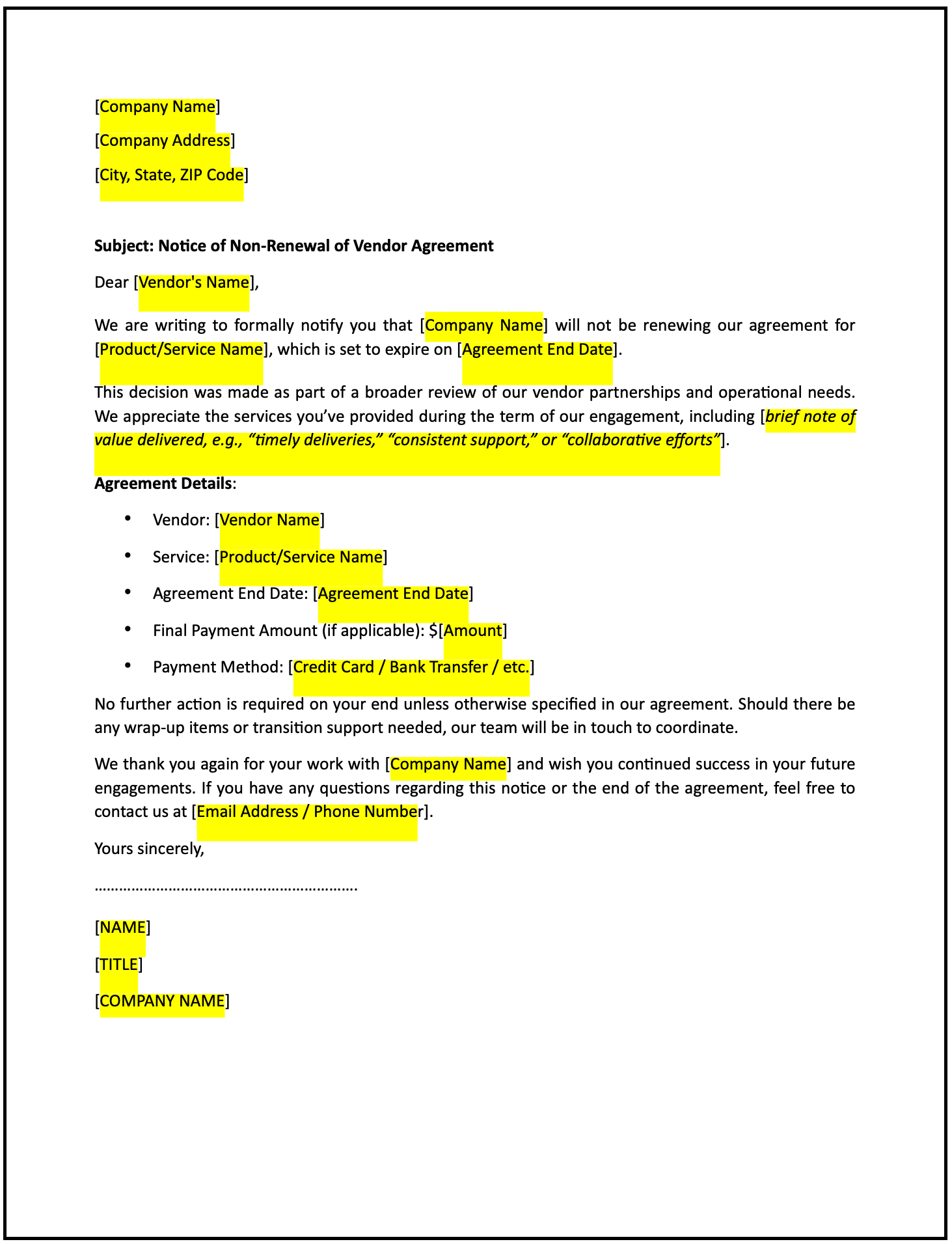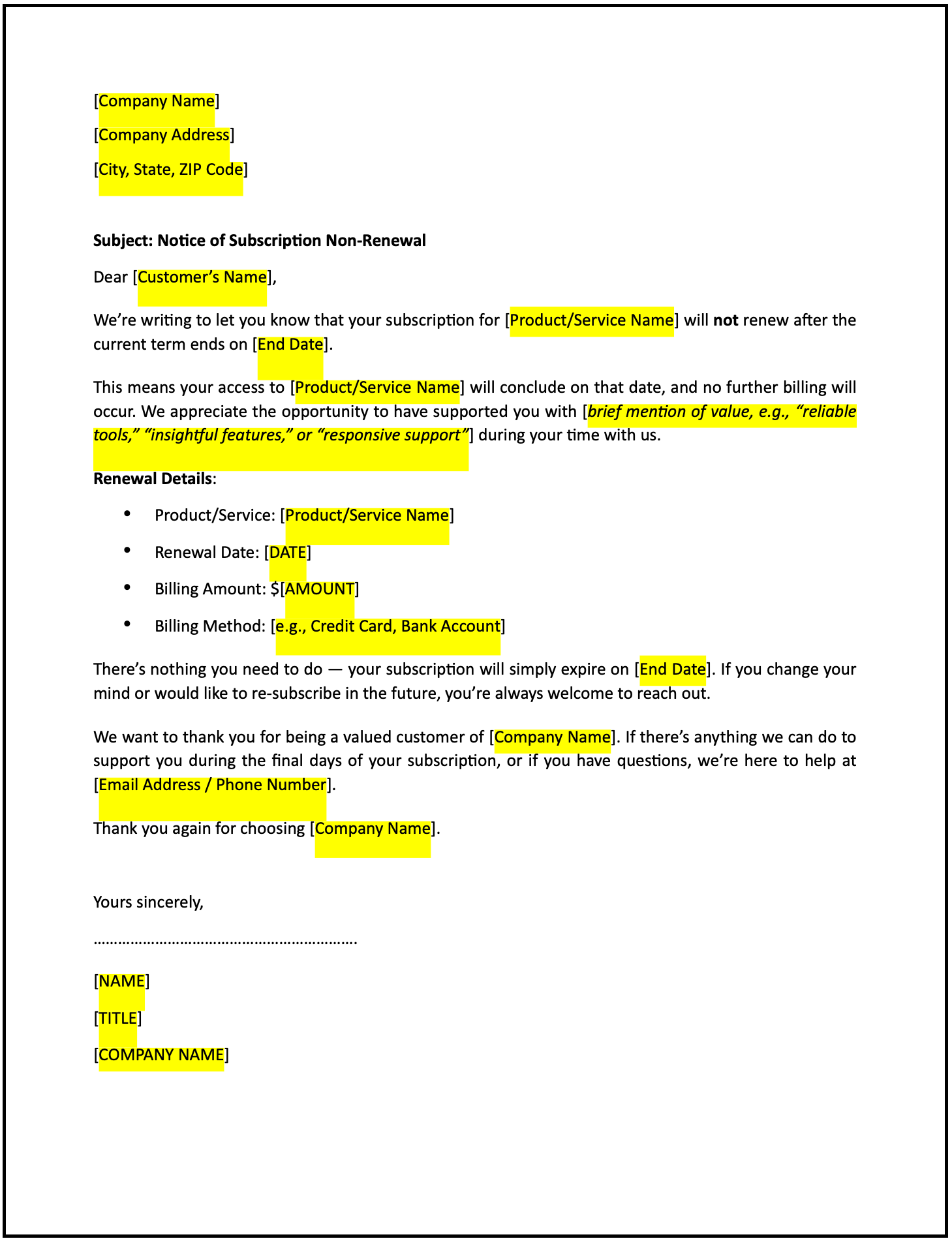Letter of request for evidence supporting legal claim: Free template

Letter of request for evidence supporting legal claim
A letter of request for evidence supporting a legal claim is a formal way to seek documentation or information necessary to evaluate or respond to a claim. This letter outlines the requested evidence, asserts your position, and encourages cooperation to resolve the matter efficiently.
How to use this letter of request for evidence supporting legal claim
- Open with context: Begin by referencing the claim or legal issue and the reason for requesting supporting evidence.
- State the request: Clearly specify the evidence or documentation being requested, such as contracts, receipts, correspondence, or reports.
- Provide justification: Explain why the requested evidence is necessary for evaluating the claim or preparing your response.
- Reference applicable laws or agreements: Mention any contractual obligations, discovery rules, or legal standards that support your request.
- Set a deadline: Provide a reasonable timeframe for submitting the evidence to ensure timely resolution.
- Maintain a professional tone: Ensure the letter is respectful, clear, and focused on fostering cooperation.
- Provide contact information: Include details for submitting the evidence or clarifying the request, if necessary.
Benefits of using a letter of request for evidence supporting legal claim
This letter template ensures a structured and professional way to request evidence while fostering transparency and resolution. Here’s how it helps:
- Promotes transparency: Clearly requesting evidence demonstrates accountability and a commitment to resolving the issue fairly.
- Supports your position: Obtaining relevant evidence strengthens your ability to evaluate or respond to the claim.
- Reflects professionalism: A well-crafted letter reinforces your credibility and seriousness.
- Reduces disputes: Clear communication minimizes misunderstandings and fosters constructive dialogue.
- Supports documentation: Creating a formal record of your request is valuable for future reference or legal proceedings.
Tips for writing an effective letter of request for evidence supporting legal claim
- Be specific: Clearly identify the evidence or information being requested and provide any necessary details.
- Use professional language: Maintain a respectful and assertive tone to encourage cooperation.
- Highlight importance: Explain why the evidence is critical to evaluating or responding to the claim.
- Reference obligations: Mention any legal or contractual provisions that support your request for evidence.
- Keep it concise: Focus on the key points without overwhelming the recipient with unnecessary details.
Frequently asked questions (FAQs)
Q: What details should I include in this letter?
A: Include references to the claim, the specific evidence requested, the reasons for the request, and a submission deadline.
Q: Should I personalize the letter?
A: Yes, addressing the recipient directly ensures clarity and demonstrates attentiveness.
Q: Who typically receives this letter?
A: Send the letter to the individual or entity making the claim or who holds the relevant evidence.
Q: How formal should this letter be?
A: The tone should be highly professional and assertive, focusing on clarity and resolution.
Q: When should this letter be sent?
A: Send the letter promptly after identifying the need for evidence to evaluate or respond to the claim.
Q: Can this letter include a follow-up process?
A: Yes, specifying follow-up actions or meetings can encourage timely responses and cooperation.
Q: Is acknowledgment from the recipient required?
A: While not mandatory, requesting confirmation ensures the letter has been delivered and understood.
This article contains general legal information and does not contain legal advice. Cobrief is not a law firm or a substitute for an attorney or law firm. The law is complex and changes often. For legal advice, please ask a lawyer.


